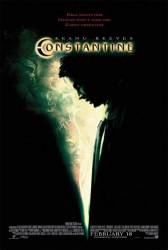
Question: Even though Isabel committed suicide, shouldn't she have gone to heaven? She willfully sacrificed herself to insure that Mammon couldn't cross on to earth so in a way, she was saving billions of people, so that should have guaranteed her entry into heaven.
Answer: If a soldier jumps on a grenade and dies to save his fellow soldiers, it's considered giving one's life for others. To my understanding, that isn't considered a "sin." If it was a mental health issue, a just God would give her a pass. If she was doing it to thwart Mammon's plans, again she was sacrificing herself. If she did it to get Constantine involved to help stop Mammon, again is was self sacrifice. (Notice how she says "Constantine" just before jumping when her sister views the video?). As a plot device, I understand it, but from a theological standpoint it is weak.
Answer: It is shown in the movie that it was Balthazar who whispered into her ear, gave her suggestions. Eventually she committed suicide to escape that, to escape her torment. She certainly didn't sacrifice herself to keep Mammon out because Mammon needed twin psychics, one in hell and one on Earth to do it, which Balthazar achieved for him.
The film doesn't give information about the need of having one twin in hell and the other on earth to complete Mammon's plan; the movie states Mammon needs a powerful psychic and God's help. It isn't shown either that Balthazar was the one whispering to Isabel's ear considering she was apparently hearing Hellspeak, but no individual besides her appeared on the death scene; therefore, it was left ambiguous. Otherwise, provide evidence of the statement above.
When John and Angela are walking back to the elevator after taking care of Balthasar they specifically mention Mammon needed twin psychics. The only reason would be for their connection. One is in hell, the other on Earth. Through their connection Mammon is able to posses Angela. As for the second thing. When Isabel commits suicide you both hear Balthasar whisper to her and she has the mark on her wrist, like Hennessy had on his hand palm, the sign of Mammon. They wanted her in Hell.
The dialogue, when they are walking towards the elevator, is "Constantine: Beeman said Mammon needed divine assistance to cross over. How's the blood of God's only son? Ángela: The stains on the spear. Constantine: Yeah. Ángela: So he gets the spear. He still has to locate a powerful psychic. Constantine: Not really. Ángela: Twins." Angela says "twins" after hearing Constantine say "Not really." (while looking at her) which made Angela realise that she was Isabel's replacement as a powerful psychic since they had the same gift, but the former's was dormant up until that moment. It's not because the plan needed one in hell and the other on earth. That's never stated as far as we know from the information provided by the film. As for Balthazar, it's never stated it was him who whispered to Isabel. That's an assumption based on hearing the voice alone. Also, the mark appeared on the guy's hand at beginning of the film after he found the spear and Balthazar was probably not there.
It's not an assumption when it's his voice. It doesn't all have to be "stated." And the whole twin part is just a coincidence? Are you saying Gabriel and Balthasar found twin psychics so they have a backup if one of them dies? That's ridiculous. They needed twin psychics specifically, and they make one of them commit suicide. That's not just a random thing, it's what needed to be done. And it's Mammon's sign, not Balthasar's.
It's an assumption because there is insufficient evidence to prove it, and there were other voices in the film to assume it was specifically Balthazar's given that Angela heard a similar voice calling her name when she was in hell and Mammon appeared, which could indicate that maybe it was Mammon who whispered to Isabel too but still not clear though. It's more speculation. Yes, not everything has to be stated since some things are implicitly given although it also depends because it can become ambiguous if it lack details which is open to interpretation, but the movie dismisses any possibility of your theory of "one in hell and the other on earth" by stating what the "villain" needed and with that the argument doesn't work. Otherwise, it would be a plot hole for creating an inconsistency with the rules established before. Angela just realised she was the powerful psychic since they had the same gift, so Mammon didn't have to locate another one since it was there in the other twin.
There is no inconsistency with the rules, there is help from god, there is a psychic. All that fits, the Hell Bible just wasn't specific enough, they didn't know the full plan. There is something significant about them being twins. Both because Isabel was killed and Angela and Constantine realise that's what Mammon was looking for.
Now, all that is just speculation, and misinterpretation of what has been explained in the reply above yours. Not continuing the discussion.
Answer: The film itself can't be blamed for that really because it was left ambiguous; the novelization added the part of Isabel's sacrifice to the story. If we go by what the film gave us then Isabel might have been an unstable person considering even Angela didn't back her up about what they could see which could've led her to believe that maybe she was indeed crazy, and as Constantine said "You think you're crazy long enough, you find a way out." Perhaps she just wanted to end everything that was happening to her. There isn't enough information in the movie to confirm or deny it.

Question: After young Willy sees his childhood home disappear, where did he live and grow up?
Answer: We are never shown what happened to him but he may have gone to live with relatives or he was simply put into an orphanage.

Question: Does Vader sleep in his suit?
Answer: Darth Vader has a special chamber in which parts of the suit can be removed for comfort. When he is not in the chamber he must wear it at all times in order to survive.
Answer: Darth Vader does have his own personal chamber made to assist him with the equipment /suit he wears as well as, I'm sure, for resting/meditation purposes. Also keep in mind that Jedi/Sith, especially those trained to use the force (particularly those having mastered it), don't need the same sleep requirements regular folks need. They can "sleep" sitting straight up, on top of much harder elements and they can even "draw" energy from the force to help them stay awake. The expanded universe, via the books, gives more examples of Jedi/Sith sleeping or measures they take.
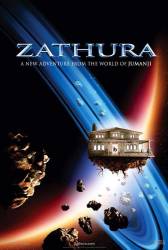
Question: When Danny presses the button, the red spaceship moves onto a white space. Later in the movie, after accepting the astronauts' help, all three discover that the red spaceship is now on a blue space. How could it have gotten there? Neither Danny or Walter kicked the board and Danny never actually moved it from its original position since they had to deal with getting rid of the Zorgons.
Answer: If you are talking about the part where Walter says that Danny cheated and Danny says "someone must have kicked the board", you're right, no one did kick the board. After again being asked if he moved the piece, Danny says "maybe I moved the piece by accident." I think this implies that Danny cheated and moved the piece himself, which is why it was on a different coloured space.
Except, it never showed Danny moving the piece at all. When Walter moved Danny's piece back to the space it was originally on, the game shot out a card accusing Walter of cheating and tried ejecting him out of the house. If Danny had moved the piece by accident and therefore technically cheated, it kind of raises the question as to why he never received a card accusing him of cheating and ejecting him from the house as well.
I think the answer to this is in the card's text - "Caught cheating" I believe this implies that since Walter was observed physically moving a piece by the other player, that is what triggered the cheating detection. Nobody saw Danny move his piece, so he was technically not caught cheating in the moment. So, ostensibly, one may be able to cheat as long as they are not caught by the other player.

Question: Are Professor Kirke and Mrs. MacReady both aware of what the wardrobe really is and what it can do?
Answer: Spoiler alert: this gives some important plot twists away. Sometimes a bit of unresolved mystery improves a story, and I think this is the case here. But the book partly answers your questions. At the end of the last chapter it is shown that Mrs MacReady thinks the wardrobe is just a piece of furniture. She knows nothing about Narnia. But Professor Kirke amazes Peter, Edmund, Susan and Lucy by expressing familiarity with Narnia and explaining that a wardrobe might well be a portal into Narnia. If C S Lewis had not written any more books after completing "The Lion The Witch And The Wardrobe" Professor Kirke's knowledge of Narnia would probably have been an unresolved mystery. But C S Lewis later wrote "The Magician's Nephew" which tells how Professor Kirke visited Narnia as a boy. The final chapter of this book says he took an apple back with him, which he planted in his garden. It grew into a tree, was cut down and made into the wardrobe. So Professor Kirke was not consciously aware of what the wardrobe could do, but with hindsight, he realised that he had set up a chain of events that caused the children to discover Narnia.
Answer: While Professor Kirke is aware of the existence of Narnia, as he was there when it was created, he doesn't appear to be aware that the wardrobe can act as a portal (although he may suspect that it has unusual properties, as the tree from which the wood came to create it grew from a Narnian apple). Mrs MacReady doesn't know.
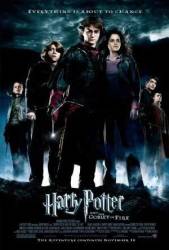
Question: If I understand correctly, Lily Potter's "love" protection no longer keeps Harry safe after the graveyard ritual, due to Voldemort getting some of Harry's blood. Why, then, doesn't Voldemort attack Harry at the Dursleys' house in the summer?
Answer: Voldemort's spell undid the Sacrificial Protection that Lily bestowed on Harry, but the Bond of Blood is a separate protection bestowed if the person sacrificing their lives is a relative. THAT spell is still renewed as long as Harry keeps returning to the Dursleys until age seventeen. Voldemort has removed one protection, but a second is still in place.
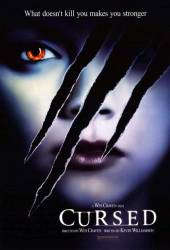
Question: Who was the werewolf who killed Jenny? It couldn't have been Joanie as she was seen as having dark brown fur when she turned into a werewolf and the one that killed Jenny had dark gray fur.
Answer: I assumed it was Jake based on what transpired in the previous scene and his face was the last one shown before the elevator door closed. Jake told Ellie he didn't want to lose her, they had something "special", and asked if she would bear with him until he overcame some difficulties. Jake saw Jenny as a pest as well as someone who could ruin his still-developing (blossoming) relationship with Ellie. Jenny confronted Jake about not calling Becky anymore. Jake responded that he put himself "off the market" (was no longer available because he was pursuing Ellie), to which Jenny responded that she was "bummed" (disappointed because Jake was not free to pursue her). Jenny also put her hand over Jake's shoulder, which Jake did not like because he was not interested in her and was afraid that Ellie would see (which she may have). To top it off, Jenny kept following Jake around the room when he was talking to other people. Jenny was clingy and persistent - so had to be eliminated.
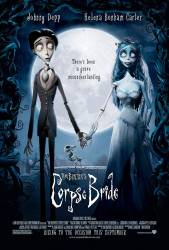
Question: In one of the extras, Tim Burton says that he got the idea for Corpse Bride from a story. He said just that it was just a few paragraphs, but what is the story that he is talking about?
Answer: It's a 19th century Russian Jewish folk-tale - the story starts quite similarly, with the lead character saying his vows while putting the ring on what he believes to be a stick. The tale generally finishes with the rabbis annulling the marriage and the living bride vowing to honour the memory of the corpse bride throughout her marriage - which ties into the Jewish tradition of honouring the dead through the lives of the living.

Question: If Lavagirl can control what she wants to burn how come she burns the diary (is it because she was too excited)?
Answer: Lava Girl is always hot to the touch. She can control when she throws magma, but the only way she can have any control over her actual body temperature is to control her emotions, which would naturally be difficult for someone her age. Even then, at her coolest possible temperature, her body temperature would still be very high. There are continuity issues with her body temperature throughout the film, ie, being able to sit on ice for extended periods of time without melting it, but the idea is she always has a very high body temperature.

Question: When Elektra goes back to her old house, she uses the gas stove to blow up the bad guys. She also turns on the bedside lamp. Is someone really paying the electric and gas bills after all those years? I'm assuming she didn't call Con Ed to reup right before she went to the house to fight.
Answer: Elektra's father was a wealthy shipping magnate and could afford to maintain the electric and gas bills for a house that the family hadn't visited in years.

Question: What is the name of the song that is played in the boat, while they have a party, at the end of Fantastic Four?
Answer: That song is "New World Symphony" by Miri Ben-Ari.
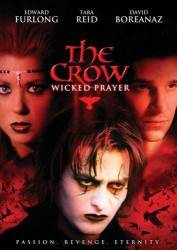
Question: Originally this fourth "Crow" film was going to be called "The Crow: Lazarus" and be about a black wannabe rapper who is brought back by the crow after a drive-by shooting. Anyone know why this plot was dropped? Because it seemed to fit the material more than a movie about Satan and God.
Answer: As I understand it, it all had to do with a spat between the director of the original Crow movie (Alex Proyas, who had "approval" of all the subsequent Crow movies) the producer of the Crow movie franchise, Jeff Most, and Miramax. Miramax eventually caved in favor of the producer and it was made into a "non-Crow entity" when Miramax reportedly signed Eminem to play the bad guy.

Question: Why was the name Max used for the helmet? Does it connect to one of the other 6 movies?
Answer: Yes the third movie Herbie Goes to Monte Carlo there is a character in the movie named Max.
Yes, but that Max didn't have two X's in his name, plus he was a thief trying to steal Herbie, not race him with a big racing suit.

Question: When Jack first speaks to Isabel, in the book shop, what is Isabel drinking out of? It almost looks like a stainless steel milk jug, instead of the normal cup which is also on the table.
Answer: It was the stainless steel milk jug (creamer). She was nervous when he came to the table. She absent-mindedly put sugar in the cream and then drank from it. Look at her face when she sips it, she realized her error and put the creamer down.
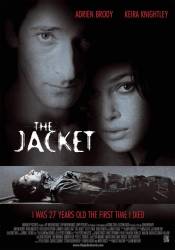
Question: Is it ever explained how Adrian Brody's character can jump to 2007?
Answer: No. The concept of how the jacket and the drawer is left a mystery to the audience.
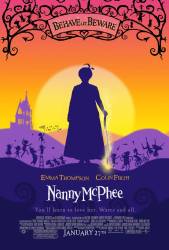
Question: There is a skull and crossbone flag in both Nanny Mcphee and Nanny Mcphee Returns, why?
Answer: The skull and crossbone flag can be interpreted in a number of ways. Death, both literally and symbolically, is an ongoing theme in the story. Cedric Brown, the children's father, is a widower, and he is also an undertaker. There have been a number of nannies for Mr. Brown's rather naughty children, but they have systematically gotten rid of each one, basically "killing them off," though not in a literal sense, until Nanny McPhee arrives.

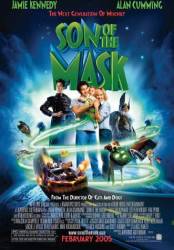
Answer: Sin for a good reason is still sin, and as Gabriel says earlier, you can't buy your way into Heaven. Real Catholic dogma, however, doesn't hold the mentally ill as condemned for committing suicide.
Greg Dwyer
Except Isabel wasn't mentally ill. She saw angels and demons just like Constantine did. It was her parents who believed she was mentally ill.
While suicide is a mortal sin, it's shown later (as in major plot point) that sacrificing yourself to save the world is a redeeming act.
Yes, but Constantine also said "My parents were normal. They did what most parents would do. They made it worse. You think you're crazy long enough, you find a way out" which could relate to Isabel losing her sanity in a way as well because of her family and how they saw her. The whole Isabel's sacrifice is added by the novelization but the movie is ambiguous about the suicide.
mp1920
Except Isabel wasn't mentally ill. She saw half breeds just like John did.
Sacrificing yourself for others isn't a sin.